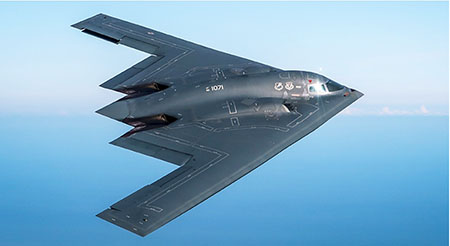by WorldTribune Staff, July 11, 2025 Real World News
When the Biden Administration abandoned U.S. assertiveness in the Middle East, it opened the door for China to rapidly increase its influence.
Seizing on Biden-era weakness, the communist regime of Xi Jinping “sought to transform Iran into a critical proxy for its grand strategy” in the region, Miles Yu wrote in a July 7 analysis for the Hoover Institution.

With President Donald Trump back as commander-in-chief at the White House, however, China’s Mideast strategy collapsed in just 12 days.
“A cascade of events culminating in the devastating so-called 12 Days War, including the audacious B-2 ‘Midnight Hammer’ operations that pulverized Iran’s nuclear infrastructure, has shattered Beijing’s Iranian project. The destruction of Iran’s nuclear enrichment facilities by the U.S. and Israel, combined with Iran’s strategic weakening and regional isolation, effectively destroyed China’s attempts to make Iran its Middle Eastern proxy,” Yu wrote.
Iran is “central to China’s Leninist-inspired ‘breakout’ and ‘diversion’ strategies,” Yu continued. “The CCP viewed Iran as the crucial link connecting the land-based Belt with the maritime Road of its Belt and Road Initiative (BRI).”
Miles Maochun Yu, a former contributing editor for Geostrategy-Direct.com served as the principal China policy and planning adviser to former United States Secretary of State Mike Pompeo. He is a professor of military history and modern China at the United States Naval Academy in Annapolis, Maryland.
In January 2021, just weeks after the Biden Administration began, the Comprehensive Chinese-Iranian Strategic Partnership (CSP) was signed. Meanwhile, Team Biden immediately resuscitated the Iran nuclear deal, or Joint Comprehensive Plan of Action (JCPOA).
Beijing pledged $400 billion to Iran in infrastructure investment in return for privileged oil access and geostrategic leverage.
“This was designed not merely to build roads or ports, but to establish a reliable anti-U.S. foothold deep in America’s traditional sphere of influence,” Yu wrote.
“Iran, in effect, was to become China’s ideological and strategic forward base—a partner willing to bleed the United States through endless regional crises, allowing Beijing to focus its resources elsewhere. But that dream unraveled dramatically.”
Related: Iran was central to China’s Middle East strategy; No more, July 3, 2025
Iran’s utility to China was disrupted when the United States and Israel launched their concerted campaign—the 12 Days War. It culminated with the “Midnight Hammer” operation, in which U.S. B-2 bomber strikes crippled Iran’s nuclear program.
The attacks were a death blow to Iran’s “ability to project influence through nuclear intimidation,” Yu wrote. “In the process, they also destroyed the strategic logic behind China’s investment. With its enrichment capabilities shattered and the regime thrown into defensive chaos, Iran could no longer credibly serve as a linchpin for the Belt and Road, nor could it effectively pin down U.S. attention as a regional spoiler.”
Yu continued: “The message to Beijing was unmistakable: the U.S. would no longer tolerate a Chinese-backed nuclear Iran, no matter how elaborate and ‘comprehensive’ the CSP or how many billions were pledged to Teheran.”
“Perhaps most devastating for Beijing was how the strikes revealed the hollowness of its anti-U.S. alliance system, known as the CRINK axis (China, Russia, Iran, North Korea). When the U.S. and Israel began pounding Iranian military targets, none of these supposed partners—not Russia, not North Korea, not even China—lifted a finger to defend Teheran.
“In effect, the 12 Days War revealed that Beijing’s ideological and strategic partners cannot be counted on to shield one another when directly threatened by U.S. power. The myth of a cohesive anti-American front, with Iran as a flagship client, has collapsed.”
